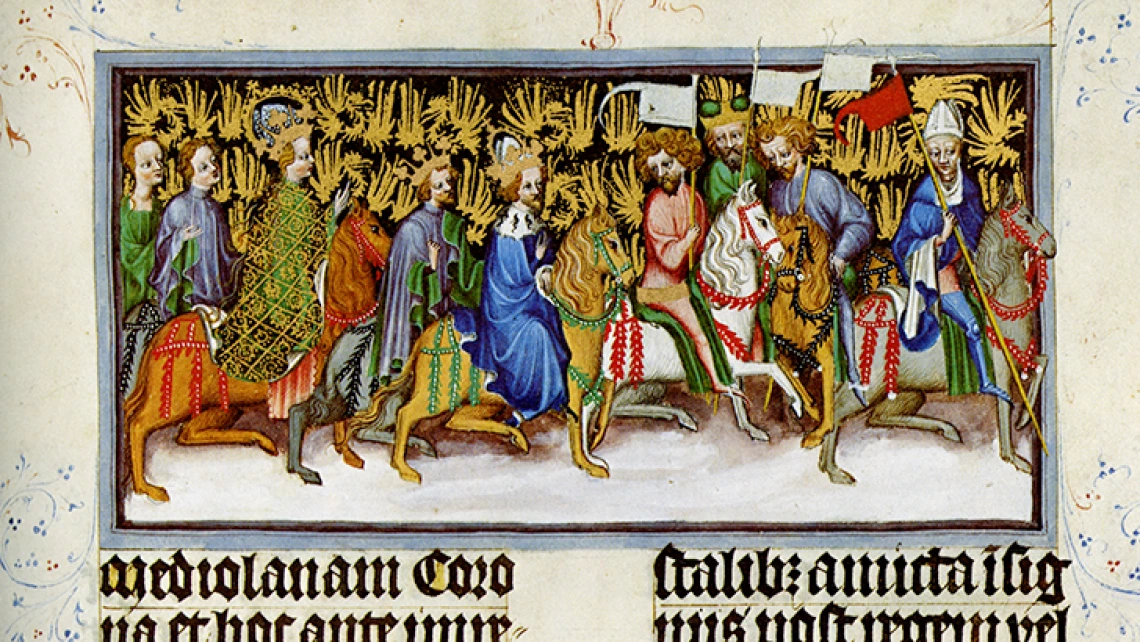Medieval Politics of the Highest Caliber in a Manuscript

(Detail) from The Golden Bull of 1356
When
Where
In 1356 the German emperor and the prince electors all agreed on a new treatise that regulated the relationship between the head of the country and the princes in a new way, paving the way for the future territorialization of the Holy Roman Empire. This meant that Emperor Charles IV gained a number of privileges for his own policies, but he also abandoned thereby the traditional idea of a strongly centralized Empire.
Special Collections houses a facsimile of that manuscript, produced for Charles’s son, Wenzeslas, today housed in the Austrian National Library Vienna, the famous Codex Vindobonensis 338 d. With this Golden Bull, however, Germany finally had an official document that regulated the election process of the German king, still far away from a democracy, but certainly comparable to some extent to the English Magna Carta. Here we also notice for the first time that the papal influence in the election of a German king/emperor was completely left out.
